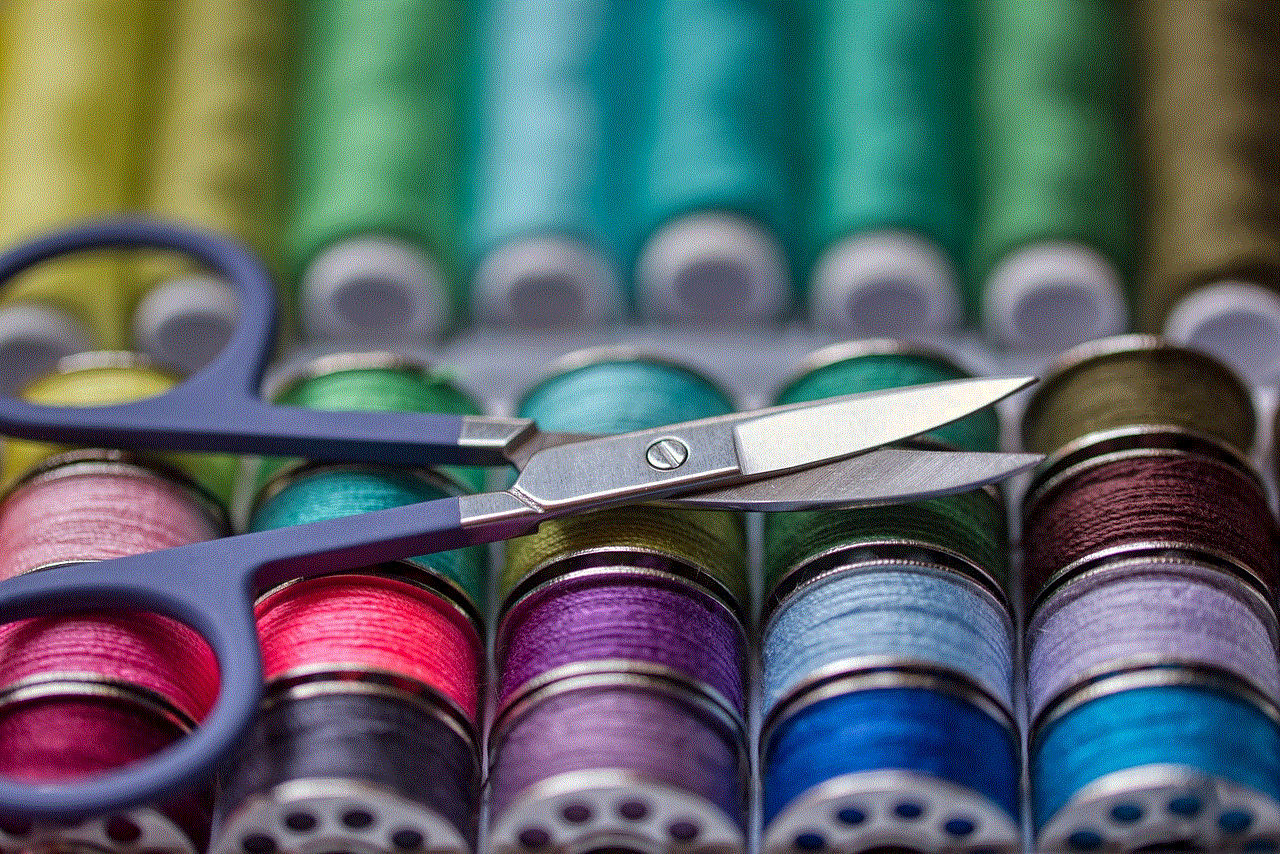how to hack a discord server and take ownership
Discord is a popular chat platform that has gained immense popularity among gamers and other online communities. It allows users to create and join servers, where they can communicate with each other through text, voice, and video channels. These servers can be either public or private, and the owner of the server has the power to manage and moderate it. However, like any other online platform, Discord servers are not immune to hacking attempts. In this article, we will discuss how to hack a Discord server and take ownership of it.
Before we dive into the methods of hacking a Discord server, it is important to note that hacking is illegal and can lead to severe consequences. We do not promote or encourage any illegal activities, and this article is for educational purposes only. It is essential to respect others’ privacy and not exploit vulnerabilities for personal gain.
Now, let’s explore the different ways to hack a Discord server and take ownership of it.
1. Phishing
Phishing is one of the most common methods used to hack a Discord server. It involves creating a fake login page that looks identical to the original Discord login page. The hacker then sends this fake login page to the server members, pretending to be a legitimate Discord staff member, and asks them to log in to their account for some security reasons. When the members enter their credentials on the fake login page, the hacker can now access their accounts and take control of the server.
To prevent falling victim to phishing, users must always check the URL and make sure it is the official Discord website before entering their login information. Discord also has a two-factor authentication feature, which adds an extra layer of security to user accounts.
2. Brute-Force Attack
A brute-force attack is a hacking technique that involves trying multiple combinations of usernames and passwords until the correct one is found. This method is time-consuming and requires a lot of computing power, but it can be effective if the user has a weak password. Hackers use automated tools to perform brute-force attacks on Discord servers, trying different combinations of usernames and passwords until they find the correct one.
To prevent this type of attack, users must use strong and unique passwords for their Discord accounts. They can also enable two-factor authentication to make it even more challenging for hackers to gain access to their accounts.
3. Social Engineering
Social engineering is a manipulation technique used by hackers to trick people into revealing sensitive information. In the case of Discord, hackers can use social engineering to gain access to a server by pretending to be someone else. For example, they can create a fake account and join the server, pretending to be a friend of the server owner. They can then ask the server owner for admin privileges, and if the owner is not careful, they might grant them access, thinking it is their friend.
To prevent social engineering attacks, server owners must verify the identity of anyone requesting admin privileges. They can also use the “audit log” feature in Discord, which records all server activities, to keep track of any suspicious actions.
4. Exploiting Server Vulnerabilities
Like any other software, Discord servers can also have vulnerabilities that can be exploited by hackers to gain access. These vulnerabilities can be in the form of bugs, coding errors, or outdated software. Once a hacker finds a vulnerability, they can exploit it to gain access to the server and take ownership of it.
To prevent this type of attack, server owners must regularly update their Discord server software and plugins. They can also use reputable security tools to scan for vulnerabilities and fix them before hackers can exploit them.
5. Insider Threats
An insider threat is a security risk that comes from within an organization. In the case of Discord servers, an insider threat can be a disgruntled server member who has admin privileges and wants to cause harm. They can use their access to delete channels, ban users, or even take control of the server.
To prevent insider threats, server owners must carefully choose who they give admin privileges to. They must also monitor the server activities and revoke admin privileges from anyone who exhibits suspicious behavior.
6. Using Discord Bots
Discord bots are third-party applications that can be added to a server to perform various tasks, such as moderating chats, playing music, or providing information. However, some Discord bots can also be used for malicious purposes. For example, hackers can create a bot that looks like a legitimate one but actually steals user information or gains access to the server.



To prevent this, server owners must only use bots from trusted sources. They should also regularly check the permissions granted to each bot and remove any that have excessive access to the server.
7. Social Engineering Discord Support
Another way hackers can take ownership of a Discord server is by social engineering the Discord support team. They can create a fake support ticket and pretend to be a server owner who has lost access to their account. If the support team falls for this trick, the hacker can gain access to the server and take ownership of it.
To prevent this, Discord users must be cautious when interacting with the support team. They should only contact support through official channels and not provide any personal information without verifying the authenticity of the request.
8. Using Keyloggers
Keyloggers are malicious programs that record every keystroke on a computer . They can be used by hackers to obtain sensitive information, such as passwords and login credentials. If a server owner has a keylogger on their computer, the hacker can use it to obtain their Discord login information and take control of the server.
To prevent this, users must regularly scan their computers for malware and avoid downloading suspicious files or clicking on links from unknown sources.
9. Hacking the Email Account
In most cases, a user’s email account is linked to their Discord account. If a hacker gains access to the user’s email account, they can reset the password for their Discord account and take ownership of the server. They can also use the email account to reset the passwords of other server members and gain access to their accounts.
To prevent this, users must use strong passwords and enable two-factor authentication for their email accounts. They should also avoid using the same password for multiple accounts.
10. Using Social Media



Lastly, hackers can also use social media platforms, such as Twitter and Reddit, to gather information about Discord servers. They can search for server invites, compile a list of servers, and try to hack them using the methods mentioned above. This is why it is essential to only share server invites with trusted individuals and not post them publicly on social media.
In conclusion, Discord servers are not immune to hacking attempts, and it is essential to take necessary precautions to protect them. As a user, you must always be cautious when sharing personal information and keep your account secure by using strong passwords and enabling two-factor authentication. As a server owner, you must regularly monitor the server activities and take necessary measures to prevent any hacking attempts. Remember, hacking is illegal, and it is crucial to respect others’ privacy and not exploit vulnerabilities for personal gain.
should you delete social media
In today’s digital age, social media has become an integral part of our lives. It allows us to connect with friends and family, share our thoughts and experiences, and stay updated with the latest news and trends. However, as social media platforms continue to grow in popularity, concerns about privacy, mental health, and productivity have also emerged. This has led many people to question whether they should delete social media altogether. In this article, we will explore the pros and cons of social media and help you make an informed decision about whether or not you should delete it.
One of the main arguments in favor of deleting social media is the impact it can have on mental health. Numerous studies have shown a link between excessive social media use and increased rates of anxiety, depression, and loneliness. The constant exposure to carefully curated highlight reels of others’ lives can lead to feelings of inadequacy and FOMO (fear of missing out). Moreover, the addictive nature of social media can make it difficult to disconnect and engage in real-life interactions. Deleting social media can, therefore, be seen as a way to protect one’s mental well-being and focus on personal growth and meaningful relationships.
Another concern raised about social media is its impact on productivity. With the constant stream of updates, notifications, and distractions, it is easy to get caught up in the virtual world and lose track of time. Many people find themselves mindlessly scrolling through their feeds instead of focusing on important tasks or pursuing their passions. Deleting social media can be a way to regain control over one’s time and energy, allowing for increased productivity and a better work-life balance.
Privacy is another significant issue associated with social media. With the amount of personal information shared on these platforms, there is a growing risk of identity theft, online scams, and unauthorized access to private data. Moreover, social media platforms collect and analyze user data to serve targeted advertisements, raising concerns about surveillance and the erosion of privacy rights. By deleting social media, individuals can reclaim control over their personal information and reduce their digital footprint.
On the other hand, social media also has several benefits that should not be overlooked. It can be a powerful tool for networking and building professional connections. Platforms like LinkedIn allow individuals to showcase their skills and experience, connect with potential employers or clients, and stay updated with industry trends. Social media can also be a valuable platform for entrepreneurs and small businesses to promote their products or services, reach a wider audience, and build brand awareness. Deleting social media can mean missing out on these opportunities for professional growth and development.
Furthermore, social media plays a crucial role in fostering social movements and raising awareness about important issues. Platforms like Twitter and Facebook have been instrumental in organizing protests, sharing information during crises, and amplifying marginalized voices. By deleting social media, one may lose the ability to participate in these conversations and contribute to social change.
Additionally, social media can be a source of inspiration and creativity. Many artists, photographers, and writers use platforms like Instagram or Pinterest to showcase their work, gain exposure, and connect with like-minded individuals. Deleting social media can mean losing access to these sources of inspiration and missing out on potential collaborations or opportunities for artistic growth.
It is also worth noting that social media can serve as a valuable source of information and news. Many people rely on platforms like Twitter or Reddit to stay updated with current events, follow their favorite journalists or experts, and engage in meaningful discussions. Deleting social media may result in a lack of access to these diverse perspectives and a narrower view of the world.
Ultimately, the decision to delete social media or not is a personal one and depends on individual circumstances and priorities. If social media is negatively impacting your mental health, productivity, or privacy, it may be worth considering deleting or at least limiting your usage. However, it is important to recognize the potential benefits of social media in terms of professional networking, activism, creativity, and access to information. Finding a healthy balance and setting boundaries around social media use can be a more sustainable approach for many individuals.



In conclusion, social media has become an integral part of our lives, offering numerous benefits and opportunities. However, concerns about mental health, productivity, and privacy have led many people to question whether they should delete social media. While deleting social media can protect one’s mental well-being, increase productivity, and regain control over personal information, it also means potentially missing out on professional opportunities, access to diverse perspectives, and the ability to contribute to social movements. Ultimately, finding a healthy balance and setting boundaries around social media use may be a more sustainable approach for many individuals. The decision to delete social media or not should be based on individual circumstances, priorities, and the recognition of both the pros and cons of these platforms.